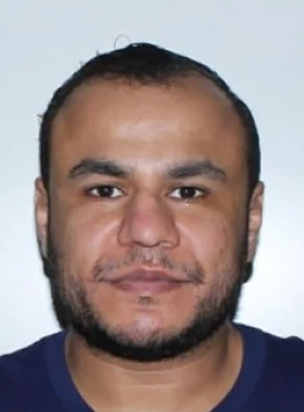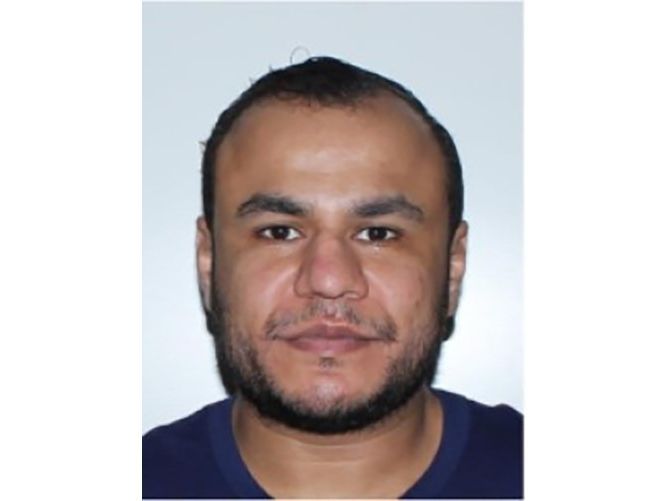More UN trash
MONTREAL — Two men who used to work for the United Nations in Montreal are facing criminal charges for their alleged roles in a conspiracy to sell Chinese attack drones to a Libyan armed group, and sanctioned oil to China.
Fathi Ben Ahmed Mhaouek, 61, appeared in a Montreal court Tuesday afternoon after he was arrested earlier in the day. He has been charged with one count of conspiracy.
Police and prosecutors say the alleged conspiracy took place between 2018 and 2021, while he was working at the International Civil Aviation Organization, a UN agency headquartered in Montreal.
“The conspiracy consisted of offering oil from Libya for sale that was from entities that are sanctioned by the United Nations. The oil was destined for the People’s Republic of China,” federal prosecutor Marie-Eve Moore told reporters at the Montreal courthouse.

Moore said Mhaouek’s alleged co-conspirator, Mahmud Mohamed Elsuwaye Sayeh, 37, who also worked at ICAO at the time of the alleged offences, has been charged with two counts of conspiracy. One is related to the alleged scheme to sell Libyan oil to China, the other involved a plan to sell Chinese military equipment, including drones, to a Libyan group.
Sayeh remains on the run. An INTERPOL Red Notice — an alert sent to police around the world — and a Canada-wide warrant have been issued for his arrest, Moore said.
A third man, James Kuang Chi Wan, is named in the charging document as a co-conspirator; however, prosecutors declined to comment about why he has not been charged.
RCMP spokesman Sgt. Charles Poirier said the alleged conspiracy involved the use of shell companies to sell Chinese military equipment — including large drones that can carry multiple missiles _ to a Libyan armed group in violation of UN sanctions related to the Libyan civil war. A federal regulation gives the sanctions the force of law in Canada.
Poirier said the regulation prohibits anyone in Canada from supplying military equipment to any of the factions that were fighting in the Libyan conflict, or helping to finance those groups. The alleged conspiracy, he said, would have benefited Gen. Khalifa Hiftar, the leader of one of two main groups in the conflict, which ended in 2020.
“The second part of this scheme was to export Libyan oil to China,” Poirier said. “So at the time, the oilfields were under the control of Gen. Khalifa Hiftar and the plan was to sell millions of drums of crude oil to China without anyone knowing about it.”
Hiftar’s self-styled Libyan National Army fought against Libya’s UN-backed government and held much of the country’s east during the civil war; he continues to be a powerful figure in that region.
Poirier said investigators have no indication that military equipment or crude oil ever reached their alleged final destinations, but he said if they had, Mhaouek and Sayeh stood to gain several million dollars a month in commissions.
“The theory behind the motivation is primarily financial,” he said. However, it would have also benefited China by allowing it to covertly support Hiftar’s faction and by giving the country prime access to Libyan oil.
Poirier said the investigation began in 2022 after the RCMP received what he described as “credible intelligence.” Mhaouek and Sayeh had diplomatic immunity due to their work with the UN, he said, adding that their immunity had to be waived by ICAO before the two men could be charged.
He said the UN organization, which sets international aviation standards, has been collaborating with the police investigation. “There’s no indication that ICAO was aware of the conspiracy until they were approached by us,” Poirier said.
Mhaouek, a Canadian citizen, is scheduled to return to court on Friday for a bail hearing.
Poirier said police don’t know the current location of Sayeh, a Libyan national. “He could be in Libya, but with the level of influence and the networking that these men had working at ICAO, he could be anywhere,” Poirier said.
The UN’s civil aviation agency said in an emailed statement that it is committed to upholding Canadian laws, UN standards and its own ethics code.
“ICAO is fully co-operating with the RCMP investigation of the individuals involved in the complaint, who left the organization a number of years ago,” the agency said. “ICAO strongly condemns any actions of individuals that are inconsistent with the organization’s values.”

 torontosun.com
torontosun.com
MONTREAL — Two men who used to work for the United Nations in Montreal are facing criminal charges for their alleged roles in a conspiracy to sell Chinese attack drones to a Libyan armed group, and sanctioned oil to China.
Fathi Ben Ahmed Mhaouek, 61, appeared in a Montreal court Tuesday afternoon after he was arrested earlier in the day. He has been charged with one count of conspiracy.
Police and prosecutors say the alleged conspiracy took place between 2018 and 2021, while he was working at the International Civil Aviation Organization, a UN agency headquartered in Montreal.
“The conspiracy consisted of offering oil from Libya for sale that was from entities that are sanctioned by the United Nations. The oil was destined for the People’s Republic of China,” federal prosecutor Marie-Eve Moore told reporters at the Montreal courthouse.

Moore said Mhaouek’s alleged co-conspirator, Mahmud Mohamed Elsuwaye Sayeh, 37, who also worked at ICAO at the time of the alleged offences, has been charged with two counts of conspiracy. One is related to the alleged scheme to sell Libyan oil to China, the other involved a plan to sell Chinese military equipment, including drones, to a Libyan group.
Sayeh remains on the run. An INTERPOL Red Notice — an alert sent to police around the world — and a Canada-wide warrant have been issued for his arrest, Moore said.
A third man, James Kuang Chi Wan, is named in the charging document as a co-conspirator; however, prosecutors declined to comment about why he has not been charged.
RCMP spokesman Sgt. Charles Poirier said the alleged conspiracy involved the use of shell companies to sell Chinese military equipment — including large drones that can carry multiple missiles _ to a Libyan armed group in violation of UN sanctions related to the Libyan civil war. A federal regulation gives the sanctions the force of law in Canada.
Poirier said the regulation prohibits anyone in Canada from supplying military equipment to any of the factions that were fighting in the Libyan conflict, or helping to finance those groups. The alleged conspiracy, he said, would have benefited Gen. Khalifa Hiftar, the leader of one of two main groups in the conflict, which ended in 2020.
“The second part of this scheme was to export Libyan oil to China,” Poirier said. “So at the time, the oilfields were under the control of Gen. Khalifa Hiftar and the plan was to sell millions of drums of crude oil to China without anyone knowing about it.”
Hiftar’s self-styled Libyan National Army fought against Libya’s UN-backed government and held much of the country’s east during the civil war; he continues to be a powerful figure in that region.
Poirier said investigators have no indication that military equipment or crude oil ever reached their alleged final destinations, but he said if they had, Mhaouek and Sayeh stood to gain several million dollars a month in commissions.
“The theory behind the motivation is primarily financial,” he said. However, it would have also benefited China by allowing it to covertly support Hiftar’s faction and by giving the country prime access to Libyan oil.
Poirier said the investigation began in 2022 after the RCMP received what he described as “credible intelligence.” Mhaouek and Sayeh had diplomatic immunity due to their work with the UN, he said, adding that their immunity had to be waived by ICAO before the two men could be charged.
He said the UN organization, which sets international aviation standards, has been collaborating with the police investigation. “There’s no indication that ICAO was aware of the conspiracy until they were approached by us,” Poirier said.
Mhaouek, a Canadian citizen, is scheduled to return to court on Friday for a bail hearing.
Poirier said police don’t know the current location of Sayeh, a Libyan national. “He could be in Libya, but with the level of influence and the networking that these men had working at ICAO, he could be anywhere,” Poirier said.
The UN’s civil aviation agency said in an emailed statement that it is committed to upholding Canadian laws, UN standards and its own ethics code.
“ICAO is fully co-operating with the RCMP investigation of the individuals involved in the complaint, who left the organization a number of years ago,” the agency said. “ICAO strongly condemns any actions of individuals that are inconsistent with the organization’s values.”

RCMP alleges two former UN workers in Montreal sold weapons, drones to Libya
The RCMP says two former UN employees in Montreal have been charged.






